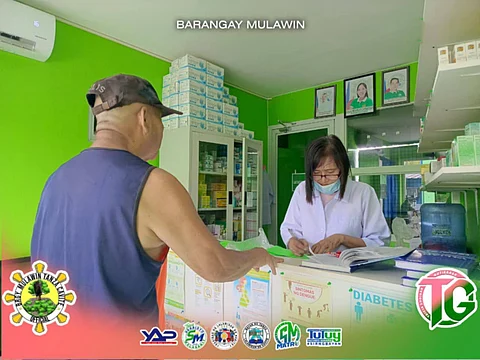
- NEWS
- the EDIT
- COMMENTARY
- BUSINESS
- LIFE
- SHOW
- ACTION
- GLOBAL GOALS
- SNAPS
- DYARYO TIRADA
- MORE

Underserved regions can look forward to better access to essential medicines as the government and private sector plan to expand community drugstores in such areas using technology.
“A regulatory sandbox approach is being explored to allow licensed pharmacists to oversee multiple pharmacies remotely, leveraging telepharmacy services and enhancing the role of pharmacy assistants,” the Private Sector Advisory Council (PSAC) said in a statement.
The plan was discussed during the 8th PSAC Healthcare Sector Meeting held in Malacañan Palace on 6 March 2025.
Data from the meeting revealed a shortage of 27,500 registered pharmacists alongside geographical disparity in terms of distribution of existing pharmacies, prompting the need for innovative solutions to improve medicine availability.
During the meeting, the PSAC also advocated for fast-track approvals of 14 essential medicines for diseases like diabetes, hypertension and various cancers to further support cost reductions for patients.
President Ferdinand R. Marcos Jr., who presided the meeting, lauded PSAC’s proposals, highlighting the private sector’s vital role in driving healthcare reforms for the benefit of Filipinos.
Aside from better access to affordable medicines, the PSAC has proposed updates to hospital licensing and physical facility standards to accelerate the establishment of new hospitals and other healthcare facilities.
The council recommends a shift to outcome-based regulations, which would streamline hospital renewal processes and promote network-based healthcare models for better resource distribution. This reform is crucial, as the country faces a hospital bed deficit amid increasing demand.
PSAC is working closely with PhilHealth to expand benefit packages, upgrade its IT systems and enhance financial transparency.
The Konsulta Program, which provides free outpatient consultations and diagnostic tests, has grown quite steadily with over 21 percent of Filipinos now covered, up from 0.37 percent in 2021.
“We are working towards a more equitable and sustainable healthcare system,” said Paolo Borromeo, PSAC Healthcare Sector lead and AC Health CEO. “Collaboration between the government and private sector is key to ensuring that every Filipino, regardless of financial standing, has access to quality healthcare.”
With Marcos’ endorsement, PSAC remains committed to public–private partnerships that drive lasting healthcare improvements, lower healthcare costs and stronger health system for the current and future generations.
The PSAC was established by Marcos Jr. to foster stronger collaboration between the public and private sectors. Comprised of business leaders and experts in agriculture, infrastructure, digital infrastructure, education and jobs, healthcare, and tourism, PSAC plays a vital role in driving economic growth.
The council’s private sector executives are strategically convened by Sabin M. Aboitiz, president and CEO of the Aboitiz Group, ensuring strong leadership and effective engagement.
